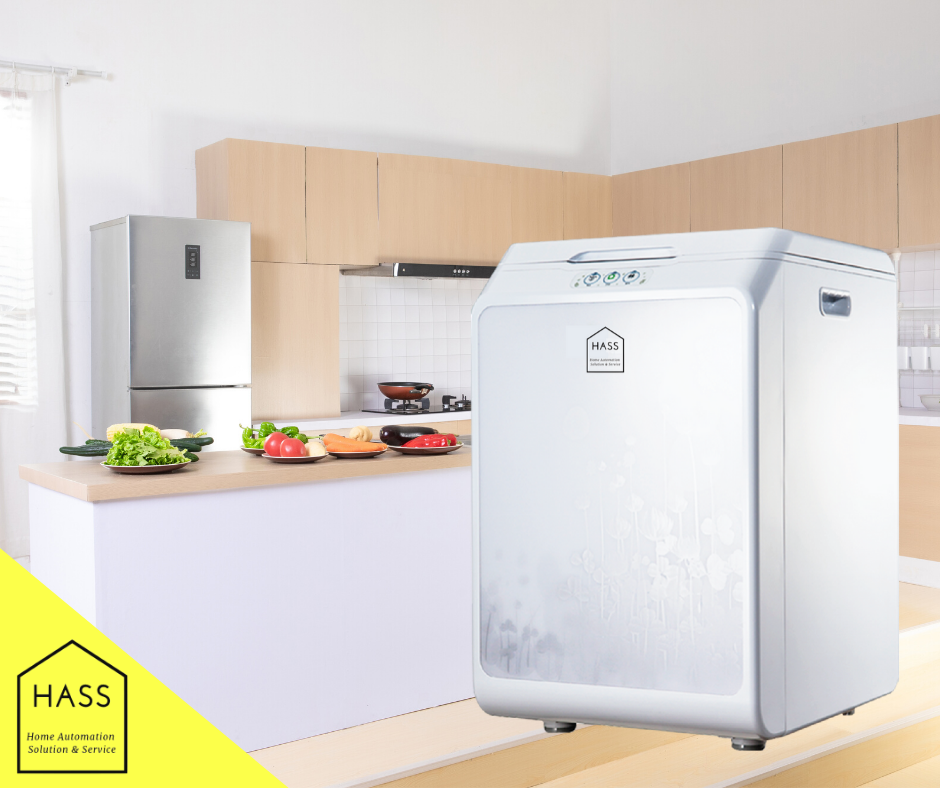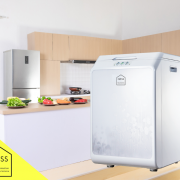Do you want to start composting at home? Have you been giving some thought to recycling your green waste and turning it into your very own compost and fertilizer? If so, then you have likely come across electric food waste composters. But, are they worth the investment?
In this article, we’re going to look at the benefits of having an electric food waste composter at home and how it can enrich your life, whilst cutting down on your carbon footprint. Let’s start started!
Do you want to start composting?
Want to start composting? You certainly won’t regret it! In fact, not only can you reduce your ‘carbon footprint’ by recycling your green and food waste, but you can get something useful at the end of it: a sort of fertilizer that can be used to feed your plants.
For a small investment, you can have one of these amazing devices in your kitchen and start really making the most out of your food waste!
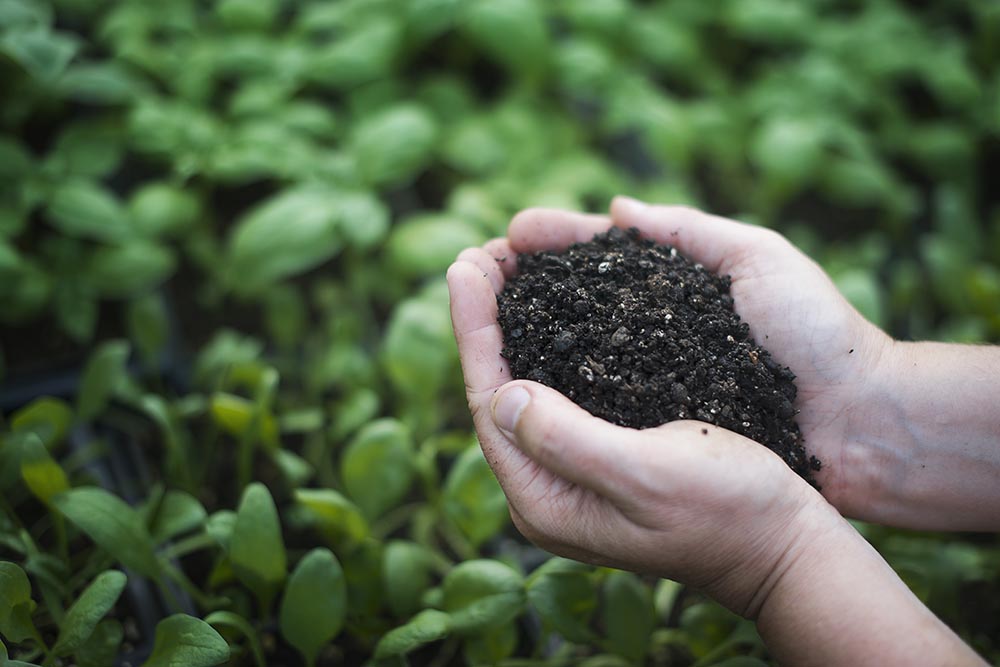
What are electric food composters and how do they work?
Electric composters (aka food recyclers) are small kitchen appliances that can easily break down any food waste that you have, turning it into compost or fertilizer. These appliances are most typically the size of a slow cooker or air fryer, and sometimes as large as a trash bin. That said, a typical electric food composter can easily fit into your kitchen.
It is however, important to understand the distinction between ‘Dehydrators’ and ‘Composters’, as the two operate differently and are often confused, miss sold or wrongly advertised by some brands.
Electric Dehydrator Machine
A dehydrator uses a different approach from a composter when eradicating food waste:
- A dehydrator uses a lot of heat to dry out all of the moisture from the food waste
- The food waste is then turned into a dry food waste and reduced in volume by up to 80-90%
- The by-product from a dehydrator is dehydrated food waste (and is not composted)
- Following that, you can bury said by-product in the ground and allow it to compost over time to create a fertiliser
- Each batch cycle will take about 4 to 5 hours to complete
- Following that you have to remove the dehydrated food waste and clean the tray out to start all over again
- This process is quite time-consuming and the fact that the by-product of a dehydrator cannot be readily used as fertiliser without further decomposition, makes it inferior to the electric composter
Electric Composter Machine
The electric composter on the other hand, in terms of functionality, works very similarly to our stomach:
- The microbial will decompose your food waste
- The decomposition process is ongoing which means that you do not have to do it in single batches (you simply throw your food waste into the mix as and when is needed)
- The decomposition rate reduces the food waste by 80-90% much like the dehydrator, however, the finished by-product is a compost that can be readily used with your plants in the same way that you would apply fertiliser
- You do not need to clean out your compost bin every day as you would a dehydrator
- It is advised that you leave a small portion of your fertiliser in the composter so that you can continue with use, and do not need to replace the microbial
- The process is much easier, requires less effort, and your food waste is turned directly into usable fertilizer with no extra steps
Should you buy an electric food waste composter?
The short answer is yes! That is of course, if you are serious about composting. An electric food waste composter is also an amazing purchase if you don’t have a garden and/or enough space to keep a traditional composter.
Electric composters are small and easy to fit into your home and can create fertilizer / compost over a much shorter period of time.
But, before you make any decisions, why don’t we look at some of the benefits that come with having an electric food composter in your home…
What are the benefits of an electric food waste composter?
- Electric food waste composters reduce methane emissions: What is arguably one of the most amazing benefits of owning a composter is the fact that you will be contributing towards the reduction of methane emissions from landfills. In the U.S alone, landfills serve as the third-largest source of methane, which is a greenhouse gas that is 25x more potent than Carbon Dioxide. Certainly, removing your food waste from landfills isn’t going to make the world of difference, but every little helps—that, and as more and more people choose composting at home as a means of disposing of their food waste, these emissions can be cut down significantly in the long-run.
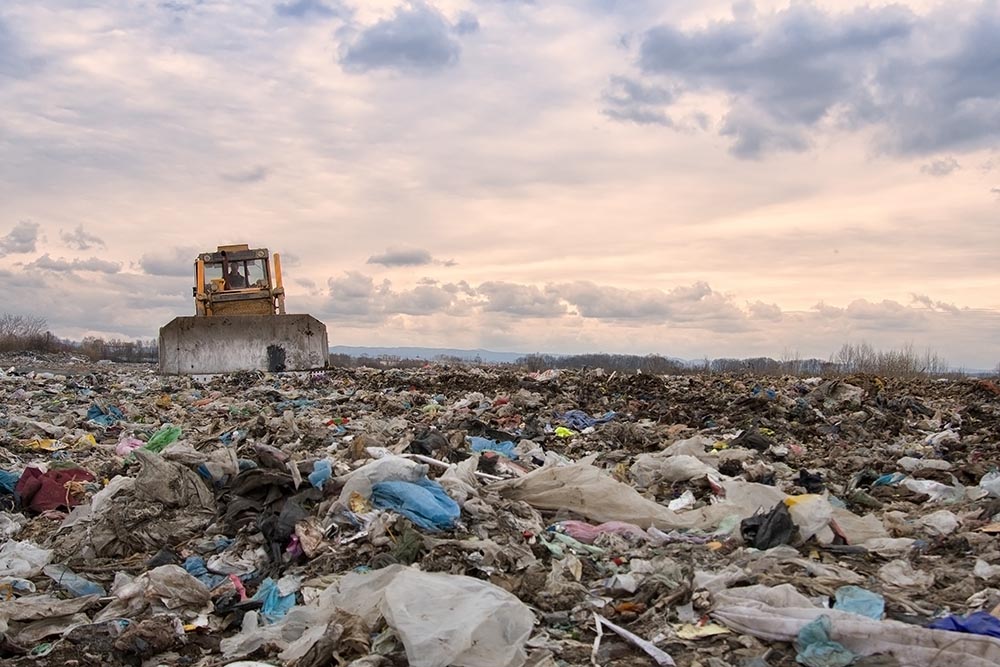
Do electric composters emit methane?
Don’t panic if you are worried about having methane in your home. In fact, quality electric composters do not emit methane while they are in use. They use a combination of UVC lamps, Ozone, and Filter systems that negate any foul odours and prevents the emission of methane throughout the composting process.
You see, most dehydrators use a proprietary filter (activated carbon). These need to be replaced every few months and they are highly expensive.
On the other hand, a HASS composter machine uses a far more robust and advanced Deodorization System, consisting of three major process:
- UVC lamp: (eradicates germs)
- Ozone: (deodorisation at a fraction of the cost)
- Filter system: (No filter change required)
The only ‘consumable’ for this type of machine is the UVC lamp which will need to be replaced every 12-15 months! So, not only will the UVC lamp need replacing far less, but it costs a fraction of the price as well.
Let’s take a look at some of the other amazing benefits:
- Save on water usage: When you have premium quality compost and fertilizer for your potted plants, you promote healthy soil that retains moisture and reduces runoff. Again, these savings might not be drastic and earth-shattering in the short-term, but over a long period of time, the savings are noticeable. If everybody in the world were making these little steps, then the impact would be substantial indeed.
- No more chemical fertilizers: With an electric food waste composter, you will be inadvertently reducing demand for commercial products such as chemical fertilizers. This will contribute to saving the environment from damage in the supply chain, as well as avoiding using potentially harmful chemicals that contaminate water and negatively impact ecosystems. That, and if you are growing your own herbs for example, you don’t want to be using chemical fertilizers and ingesting them. A natural and organic source of fertilizer in your own kitchen! Amazing.
- Help your plants thrive: Having premium quality, home-grown compost, you can feed your plants and allow them to thrive. Whether it’s a few potted plants on the balcony, or you have a growing garden with plenty of wildflowers; they will be significantly healthier, thus sequestering yet even more Carbon Dioxide from the atmosphere.
- Use fewer trash bags: When you dispose of food waste in a trash bag, you have to empty your bin more regularly in order to prevent your home from smelling of rotting food and waste. However, when you dispose of your food waste via your very own electric food waste composter, you will be cutting down significantly on how often you’re forced to take out the trash and put a fresh bin-bag in. In fact, with the majority of your food waste taken care of, the majority of the trash coming out of your home should for the most part be recyclable.
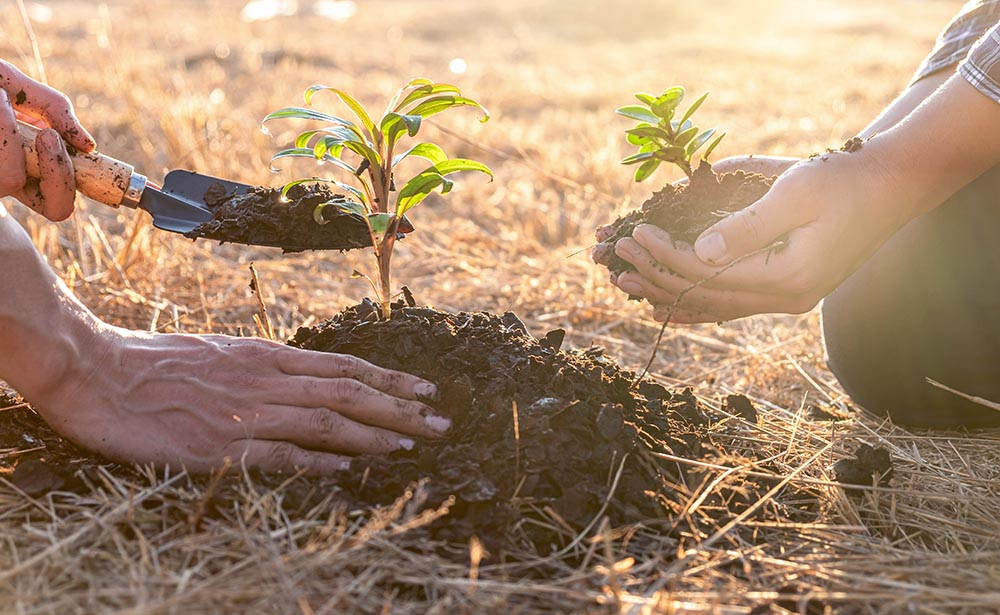
Conclusion
So, to answer the question: “should I buy an electric food waste composter?”, the answer is yes. As you can see from the benefits listed above, there are a number of ways that you can not only improve your home life, but also do your part for the environment whilst you are at it. Thus, if you are eco-conscious and wish to lead as environmentally-friendly a life as possible, then one of our electric food waste composters will almost certainly do the trick!
Need more information? Do you have a certain question that wasn’t addressed in this article? Please do not hesitate to contact us today!

